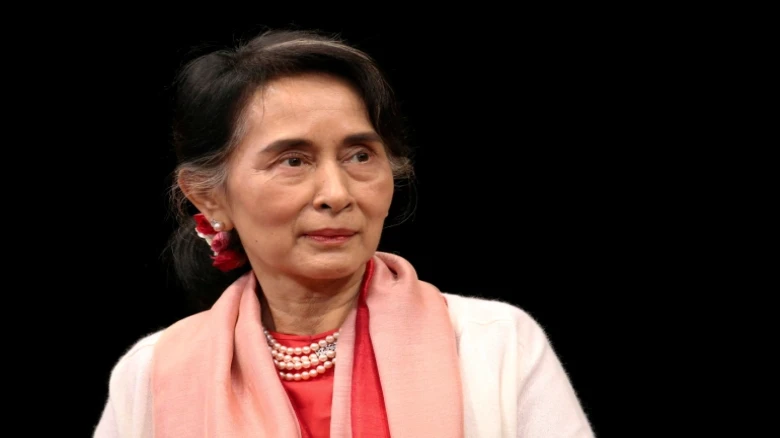Aung San Suu Kyi has been detained since Myanmar's army overthrew her government in a coup last February...
Digital Desk: Myanmar's military chief said on Friday that the junta is willing to negotiate with former leader Aung San Suu Kyi to end the situation precipitated by the coup, after her hearings in a junta-run court are concluded.
In a statement, Min Aung Hlaing said, "We are going to consider (negotiations) depending on her response when the legal processes against her according to the law are done."
Suu Kyi, 77, has been imprisoned since the generals deposed her government in a coup on February 1, last year, thereby ending the Southeast Asian country's brief period of democracy.
For a number of charges that rights groups claim are politically motivated, she has already served 17 years in prison.
Suu Kyi might face decades in prison if she is convicted on a slew of other allegations in a closed junta court.
Her lawyers are prohibited from communicating with the media, journalists are not allowed to cover the proceedings, and the junta has not indicated when her trials might be over.
In July, a junta spokesperson told AFP that the conversation with Suu Kyi was "not impossible" to end the chaos caused by the military's power grab last year.
"We cannot declare that (negotiations with Suu Kyi) are impossible," Zaw Min Tun said.
Suu Kyi is still admired in Myanmar for her brave opposition to the previous dictatorship, despite her international reputation having degraded after she won the 2015 elections and governed in a power-sharing agreement with the generals.
But many have argued that the movement needs to go further than what the Nobel winner led decades ago, especially for those who are currently engaged in conflict with the military.
The aim today, according to dissidents, is to permanently eradicate military supremacy from the nation's politics and economy.
The 10-nation Association of Southeast Asian Nations (ASEAN), of which Myanmar is a part, has made diplomatic attempts to stop the bloodshed, but to no avail.
The group adopted a "five-point consensus" last year that calls for an end to violence and a start to a productive discussion, but the junta has mostly ignored it.
This week, UN Special Envoy Noeleen Heyzer visited the country for the first time since her appointment last year and met with junta chief Min Aung Hlaing and other top military officials.
However, she was refused a meeting with Suu Kyi, and rights groups expressed little hope that her visit would convince the military to stop its brutal campaign and engage in communication with its coup opponents.
According to a local monitoring organization, the military's crackdown on opposition since seizing power has resulted in more than 2,200 deaths and over 15,000 arrests.

Leave A Comment